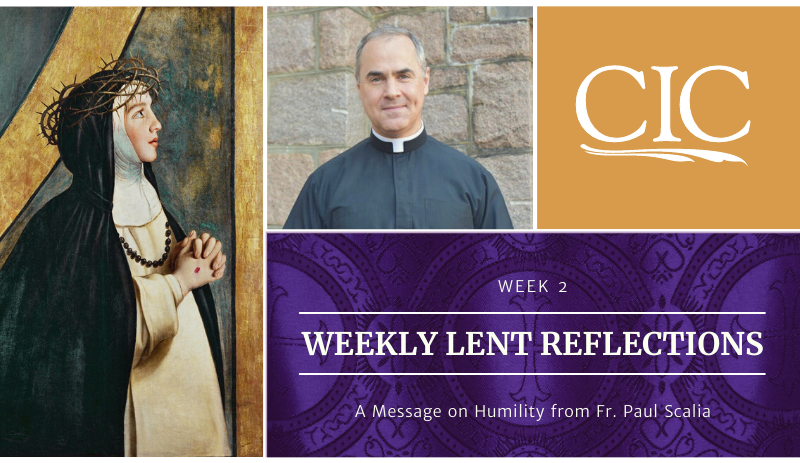A Lenten Meditation by Fr. Paul Scalia: Humility

A Message on Humility
By Fr. Paul Scalia, priest of the Diocese of Arlington, Virginia
Monday, March 1, 2021
www.cicdc.org/lent2024
| Humility and Joseph Sometime ago I heard the question posed whether humility is located in the intellect or in the will. Does it consist of knowledge of oneself or the deliberate choice to lower oneself? As with so many aspects of our faith, the answer seems to be Yes. Humility consists of both self-knowledge and self-emptying. Indeed, they complement one another. As an intellectual virtue humility is simply the proper understanding and acceptance of one’s status, talents, gifts, and defects. The humble man knows both his strengths and weaknesses. He doesn’t deny his talents, but neither does he get beyond his raising. Humility means possessing self-knowledge and self-awareness, but not being self-conscious or self-referential. The humble man knows himself well enough to forget about himself. As Father Edward Leen puts it somewhere: humility doesn’t mean thinking little of oneself; it means not thinking of oneself at all. Humility enables self-forgetfulness – and more. Which brings us to the complement. As a virtue of the will, humility is the deliberate choice to lower oneself. It is the spiritual strength that enables us to humble ourselves: avoiding attention, not promoting ourselves or “flexing” in conversation, taking up the menial tasks and inglorious chores, reflecting on our sinfulness, etc. Given our fallen human nature, this abasement is necessary in order to push against pride and maintain the proper estimation of ourselves. Saint Joseph, to whom this year is dedicated, gives us a wonderful example of both dimensions. He knows his status in the Holy Family: that he is both the head of the family and the least among them. Knowing this, he is also able to give himself in simple, hidden service to Jesus and Mary. May he intercede for us, that we increase in the ability to know ourselves and to give ourselves. |
